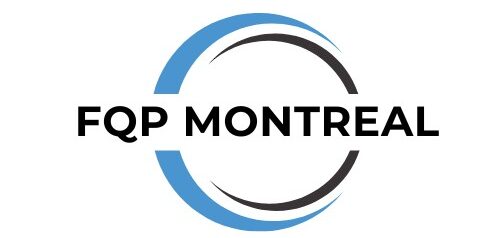Montreal, a vibrant city in the province of Quebec, has long been recognized as a cultural and historical gem in Canada. However, beyond its rich heritage, Montreal plays a crucial role as a thriving financial hub that contributes significantly to the nation’s economy. With a dynamic financial sector, a robust talent pool, and a strategic geographic location, Montreal has emerged as a key player in the country’s financial landscape. This article delves into Montreal’s journey as a financial center, highlighting its key strengths and its vital contribution to Canada’s economy.
A Rich Financial History
Montreal’s financial history dates back centuries, with the establishment of Canada’s first bank, the Bank of Montreal, in 1817. This pivotal moment laid the foundation for the city’s financial prowess. Over the years, Montreal has grown to become the second-largest financial center in Canada after Toronto. The city’s strategic geographic location, bridging North America and Europe, has played a significant role in attracting international investments and fostering trade relationships.
A Vibrant Financial Sector
Montreal boasts a robust and diverse financial sector that encompasses various sub-industries. The city is home to a wide range of financial institutions, including major banks, investment firms, insurance companies, and asset management firms. Notably, the Montreal Exchange (MX), a subsidiary of the TMX Group, is Canada’s oldest exchange and a vital player in the country’s capital markets.
The city’s financial sector thrives on innovation and technology. Montreal has witnessed a surge in fintech startups, attracting venture capital funding and fostering entrepreneurship. The presence of renowned academic institutions, such as McGill University and HEC Montréal, has further fueled the growth of financial education and research in the city.
An Abundance of Talent
Montreal’s financial success is attributed to its abundant pool of talented professionals. The city is known for its bilingual workforce, with a large percentage of individuals proficient in both English and French, providing a competitive advantage in serving domestic and international clients. Moreover, Montreal’s universities and colleges produce a steady stream of highly skilled graduates in finance, accounting, and related fields, nurturing a pipeline of talent for the industry.
The government and private sector collaborate closely to ensure the availability of top-notch talent. Initiatives such as tax incentives for businesses, internship programs, and partnerships between universities and financial institutions promote skill development and attract talent to Montreal’s financial sector.
Contributions to the National Economy
Montreal’s economic contribution extends far beyond its borders, making it a vital pillar of Canada’s financial landscape. The financial services industry in Montreal employs tens of thousands of professionals and generates billions of dollars in revenue annually. The sector encompasses a broad spectrum of activities, including banking, insurance, securities trading, and asset management, providing crucial financial services to individuals, businesses, and the government.
The city’s financial institutions facilitate capital flows, enabling businesses to access funding for growth and innovation. Montreal’s banks provide a range of services, including corporate lending, wealth management, and international trade financing, supporting the entrepreneurial spirit and economic development across the nation.
The Montreal Exchange, as a leading derivatives market, plays a pivotal role in hedging and risk management for businesses. It offers a variety of financial instruments, including options, futures, and indices, enabling companies to manage their exposure to market fluctuations effectively.
Furthermore, Montreal’s financial sector fosters job creation, directly and indirectly, by spurring demand for supporting services. These include legal and accounting services, technology solutions, and professional consulting, all of which contribute to the overall economic growth of the city and the country.
Conclusion
Montreal’s evolution as Canada’s financial hub showcases the city’s strength, resilience, and ability to adapt to changing economic landscapes. With a rich financial history, a vibrant and innovative sector, an abundance of talent, and a significant contribution to the national economy, Montreal has established itself as a key player in the country’s financial ecosystem. As the city continues to attract investments, foster innovation, and support entrepreneurship, its role as Canada’s financial hub will only grow stronger, ensuring a prosperous future for both Montreal and the nation as a whole.
